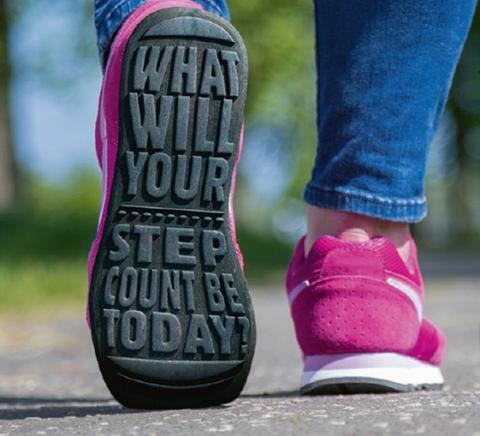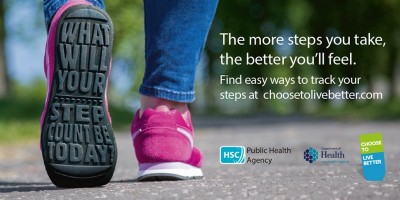Put a spring in your step as the clocks go forward

With the clocks having sprung forward at the weekend, the Public Health Agency (PHA) is encouraging everyone to use the stretch in the evenings to stretch their legs.
Colette Brolly, the PHA’s lead on physical activity, said: “The longer evenings mean we have more time to get involved in physical activity, whether it’s getting out on the bike, having a kick-about in the park or getting out for a walk.
“Over the dark winter months, it is easy to get stuck in a rut, watching TV, playing computer games and generally being less active, but with the arrival of the brighter nights, we have a perfect opportunity to get out and exercise more.
“One of the best ways to do this is to increase your step count and get walking. Adding a brisk pace to your step can help you feel good, reduce anxiety, help manage your weight, reduce blood pressure and help you sleep better.
“Walking is something you can fit in to your everyday routine such as walking to the shops or to work instead of driving.
“It’s is one of the simplest forms of exercise and you don’t need any specialised equipment to start, just a comfortable pair of shoes.
“The average number of steps a person takes each day is between 3,000 and 4,000, so most of us could do with getting a bit more active.
“With 36% of adults here overweight and 27% obese, it is now more important than ever that we look at how we can adapt our behaviours to make healthier, more sustainable choices.”
With a few simple steps, here’s how you can build some activity into your daily routine:
- Try walking or cycling for either part of, or your entire, journey to work;
- If you have to drive or take the bus, park the car a little further away from your destination or hop off the bus a stop or two earlier and walk the rest of the way;
- When you’re out and about or in work, take the stairs instead of the lift to get your legs moving;
- During your lunch break, go for a walk rather than sitting at your desk. A 10-minute brisk walk adds to your recommended physical activity target;
- When you get home in the evening, instead of slouching in front of the TV, go for a walk. Get the kids involved too and go to the park with them on their bikes or for a kick about with the football.
Colette continued: “Walking is one of the easiest and most accessible forms of exercise for most people and walking in a group can be a great way to stay motivated and enjoy it more. Pull on a pair of comfortable shoes and take those first steps to better health. Don’t forget that any activity is better than none.”
There are free walking groups arranged by your local Health and Social Care Trust and the details of the Walk Leaders can be found on the PHA’s website www.choosetolivebetter.com
The website also offers lots of tips on the best ways to get active and also advice on healthy eating and setting targets for getting healthier.
Notes to editors
- Physical activity is very important to our health and wellbeing.
- The Chief Medical Officer (CMO) recommends that adults should be aiming for 30 minutes of moderate physical activity most days (at least five days) each week. For health benefits activities should last 10 minutes or more.
- Children should have at least 60 minutes of moderate to vigorous activity each day. Any physical activity however is better than none.
- Being physically active can help improve mental health by lifting mood, reducing anxiety and helping to protect against depression. Being physically active helps maintain a healthy weight and can reduce the risk of many diseases including heart disease, Type 2 diabetes, breast cancer, and colon cancer.

